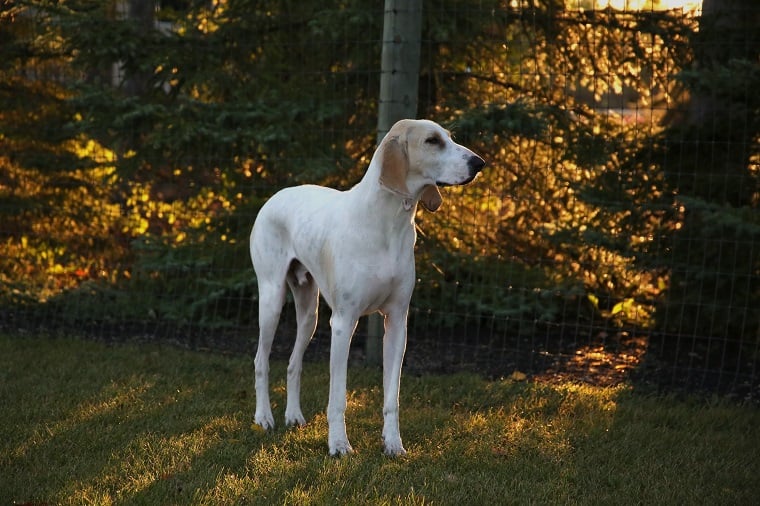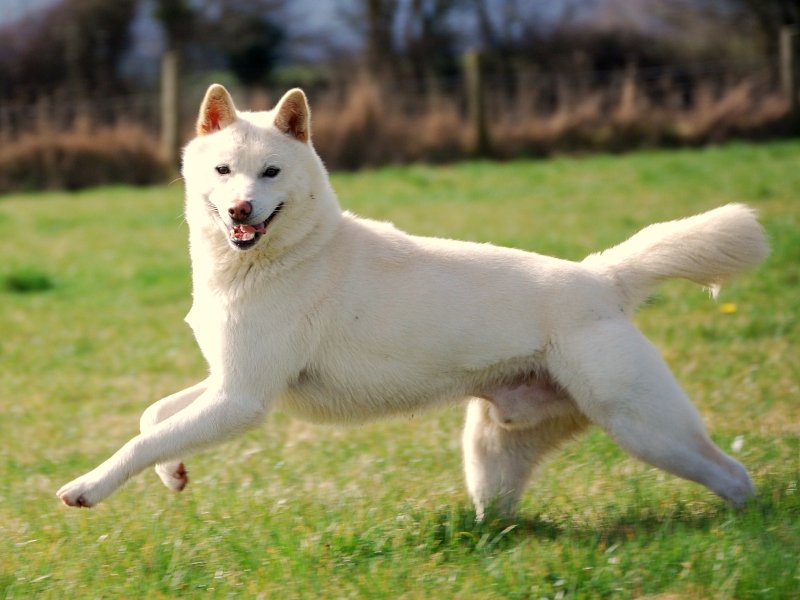Introduction
The Porcelaine is a rare breed of scent hound originally from France. They are known for their excellent hunting abilities and friendly personalities.
Porcelaine Temperament
Porcelaines are known for their friendly, sociable, and gentle personalities. They are intelligent, loyal, and make excellent family pets. They have a strong hunting instinct, but are not aggressive and tend to get along well with other pets and children. Porcelaines can be sensitive and respond well to positive reinforcement training.
Aggression

Porcelaine is a breed known for being friendly and easygoing, and generally not aggressive towards humans or other animals. However, like all dogs, Porcelaines may exhibit aggressive behavior if they feel threatened or if they perceive a threat to their owner or territory. Early socialization and proper training can help prevent aggressive tendencies in Porcelaines, but it’s important to note that any dog, regardless of breed, has the potential to show aggression in certain circumstances.
Health and Lifespan
The lifespan range of Porcelaines is typically between 12 to 14 years. However, factors such as genetics, diet, exercise, and overall health can all play a role in determining the length of a Porcelaine’s life. It is important for owners to provide proper care and regular veterinary check-ups to ensure their Porcelaine lives a healthy and happy life.
Food for Porcelaine
When it comes to feeding a Porcelaine, a high-quality dog food that is rich in protein, with moderate fat and low carbohydrate content, is the best option. Look for a food that lists a high-quality animal protein source, such as chicken or lamb, as the first ingredient. Avoid foods that contain fillers, artificial preservatives, and by-products. Additionally, it is recommended to consult with a veterinarian to determine the appropriate portion size and feeding schedule for your Porcelaine based on its age, weight, and activity level.
Training for Porcelaine

Training a Porcelaine requires patience, consistency, and positive reinforcement. Porcelaines have a strong hunting instinct, so it’s important to start training early and socialize them with other pets and people. Use positive reinforcement techniques, such as treats and praise, to reward good behavior and encourage obedience. Porcelaines respond well to training that incorporates mental stimulation and exercise, such as tracking or agility training. Training sessions should be kept short and frequent to maintain their focus.
Conclusion
In conclusion, the Porcelaine is a rare breed that is known for its hunting skills and affectionate personality. This breed is a great choice for those who love the outdoors and have an active lifestyle. With proper training and socialization, Porcelaines can make loyal and loving companions. A nutritious diet is important for their health and well-being, and regular exercise is crucial to keep them happy and healthy.




